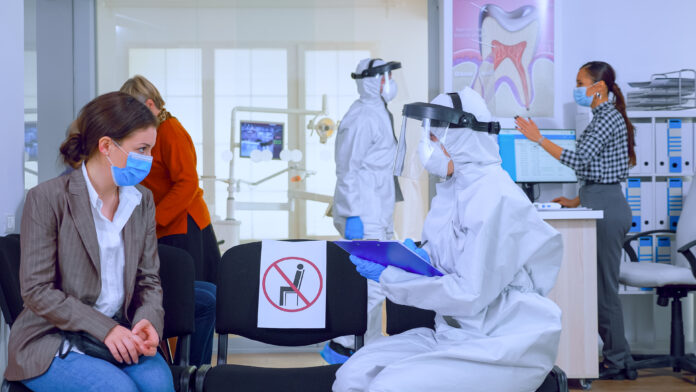Breathing is a fundamental aspect of human life essential for survival and overall well-being. Our lungs play a critical role in the respiratory system allowing us to inhale oxygen and exhale carbon dioxide. However various factors can impact lung health, leading to respiratory disorders and difficulties. To diagnose and monitor lung conditions medical professionals rely on pulmonary function labs specialized facilities equipped to assess lung function.
The Significance of Lung Health Assessment
Maintaining optimal lung health is vital for individuals of all ages, as compromised respiratory function can significantly impact daily life and overall health. Numerous respiratory conditions, such as chronic obstructive pulmonary disease (COPD), asthma, and pulmonary fibrosis, require accurate diagnosis and continuous monitoring to ensure appropriate treatment. By assessing lung health, medical professionals can identify abnormalities, measure lung capacity, and determine the effectiveness of therapeutic interventions.

Understanding Pulmonary Function Tests
Pulmonary function tests (PFTs) are a series of non-invasive procedures performed in pulmonary function labs to evaluate lung function. These tests measure various parameters, including lung capacity, airflow, and gas exchange, to assess the integrity of the respiratory system. PFTs are commonly used to diagnose respiratory disorders, monitor disease progression, and evaluate the effectiveness of interventions. Let’s explore some of the key pulmonary function tests conducted in these specialized labs:
- Spirometry:
Spirometry is one of the most common pulmonary function tests. It measures lung capacity and airflow by assessing the volume and speed of inhaled and exhaled breaths. Spirometry helps identify conditions like COPD, asthma, and restrictive lung diseases.
- Lung Volumes:
This test determines the total lung capacity, functional residual capacity, and residual volume. By measuring these parameters, medical professionals can diagnose lung diseases that affect lung volume and assess the severity of existing conditions.
- Diffusion Capacity:
The diffusion capacity test measures how well gases, particularly oxygen, are diffused into the bloodstream from the lungs. It assesses the efficiency of gas exchange and aids in diagnosing conditions such as pulmonary fibrosis and emphysema.
- Exercise Stress Testing:
Exercise stress tests evaluate lung function during physical exertion. These tests measure oxygen consumption, carbon dioxide production, and heart rate to determine exercise-induced breathing limitations and diagnose exercise-induced asthma.
- Bronchial Provocation Testing:
This test assesses airway hypersensitivity and helps diagnose asthma. During this test, the patient inhales substances that trigger airway constriction, and lung function is measured before and after exposure.
- Arterial Blood Gas Analysis:
Arterial blood gas analysis measures the levels of oxygen and carbon dioxide in the blood. This test provides critical information about respiratory function and is often used in critical care settings.
The Role of Pulmonary Function Labs
Pulmonary function labs are specialized facilities staffed with trained healthcare professionals who administer and interpret pulmonary function tests. These labs are equipped with advanced technology and instrumentation necessary to conduct a wide range of assessments. The professionals working in these labs, including respiratory therapists and pulmonologists, play a crucial role in accurately interpreting test results and providing accurate diagnoses.

Once the tests are completed, the data collected from the pulmonary function tests is analyzed and compared to established reference values. This allows healthcare providers to assess lung function abnormalities, identify the presence of respiratory disorders, and develop personalized treatment plans. Pulmonary function labs often collaborate with other medical specialists to ensure comprehensive care and follow-up for patients with lung conditions.
Can CBC detect lung problems?
A complete blood count (CBC) is a blood test that provides information about different components of blood, such as red blood cells, white blood cells, and platelets. While a CBC is a valuable test for assessing overall health and detecting certain conditions, it is not specifically designed to diagnose or detect lung problems.
A CBC can indirectly provide some information that may be useful in evaluating lung health. For example:
1.Hemoglobin (Hb) and Hematocrit (Hct):
These measures indicate the oxygen-carrying capacity of the blood. Low hemoglobin or hematocrit levels may suggest anemia, which can contribute to reduced oxygenation. However, anemia can have various causes, and further investigations are required to determine if a lung problem is the underlying cause.
2.White Blood Cell (WBC) Count:
An elevated white blood cell count may indicate an ongoing infection or inflammation, which can be associated with lung infections or inflammatory lung diseases. However, it does not provide direct information about the lung itself.
While a CBC can provide some general indications, specific lung problems require more specialized tests such as pulmonary function tests, imaging studies (like chest X-rays or CT scans), or direct examination of the respiratory system through procedures like bronchoscopy.
It’s important to consult with a healthcare professional who can evaluate your symptoms, medical history, and order appropriate tests to accurately diagnose and assess any potential lung problems.
Conclusion
Pulmonary function labs serve as essential centers for assessing lung health and diagnosing respiratory disorders. The tests conducted in these facilities provide valuable insights into lung capacity, airflow, and gas exchange, helping healthcare professionals make accurate diagnoses and develop effective treatment plans. By evaluating lung function, these labs play a vital role in improving the quality of life for individuals with respiratory conditions. As technology advances and our understanding of lung health deepens, pulmonary function labs will continue to evolve, enabling earlier detection, precise monitoring, and targeted interventions for various lung diseases.








